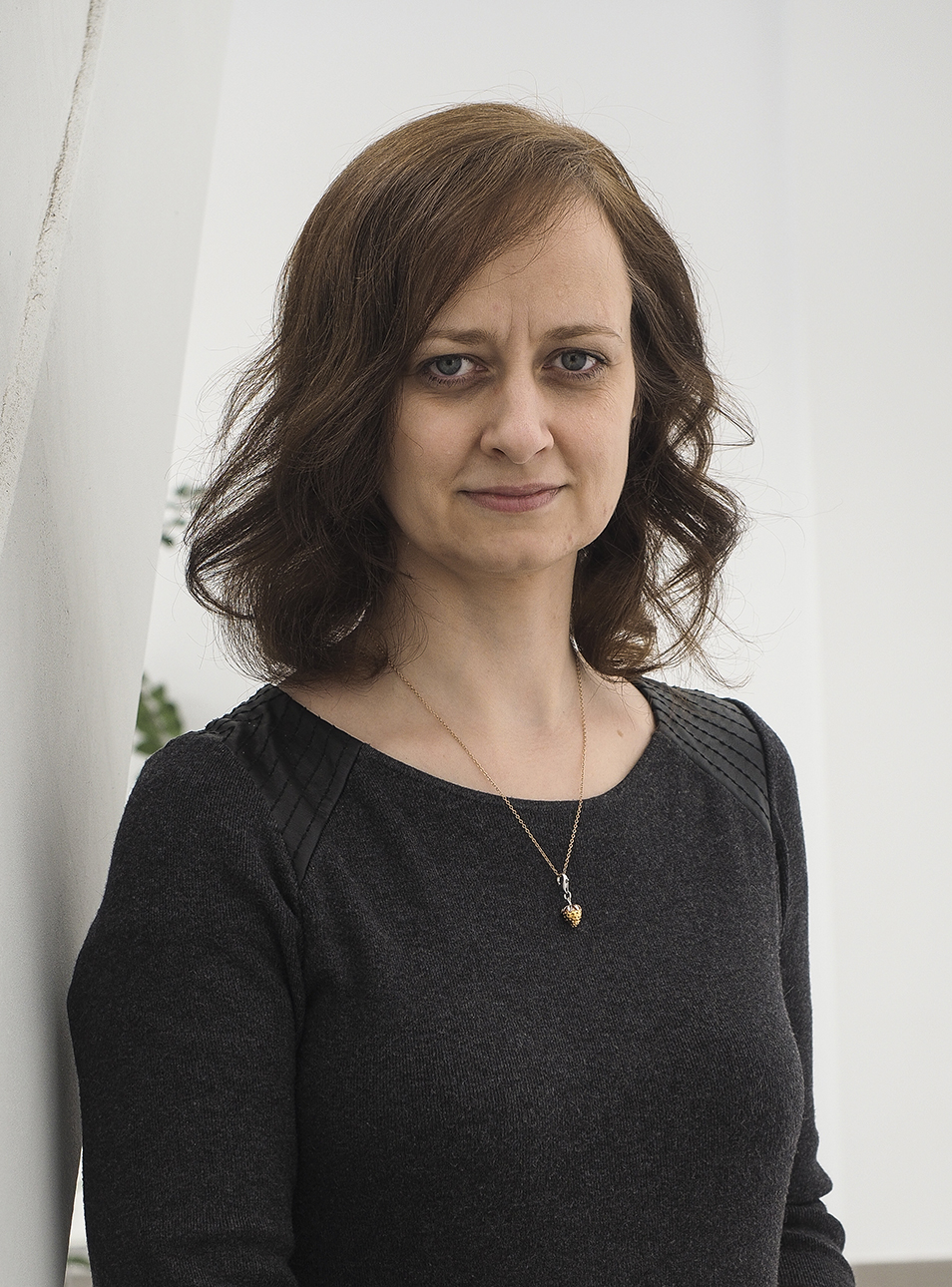-
 Clinical Departments
Clinical Departments
- Emergency Department
- Outpatient Department
- Diagnostic Departments
-
Surgical Departments
- Anesthesiology, Intensive Care and Operating-room Department
- Thoracic Surgery and Oncology Department
- Head and Neck and Skin Cancer Surgery and Oncology Department
- Oncourology Department
- Oncogynecology Department
- Breast Surgery and Oncology Department
- General and Abdominal Surgery and Oncology Department
- Therapeutic Departments
- Nursing Department
- Physical Medicine and Rehabilitation Department
-
 Research Departments
Research Departments
-
 Cancer Registry
Cancer Registry
-
 International cooperation
International cooperation
-
.png) Competence Center
Competence Center

Head Ieva Vincerževskienė
Phone: +370 5 219 0927;
Email: ieva.vincerzevskiene![]() nvi.lt
nvi.lt
Cancer Registry
National Cancer Institute’s Cancer registry is a nationwide and population-based cancer registry, which covers all territory of Lithuania and it collects information about all new cancer cases (ICD-10-AM codes: C00-C96, D00-D09, D32-D33, D39.1, D42-D43, D45-D47) of all cancer patients.
The main task of the Cancer Registry is to guarantee as complete and reliable registration of incident cancer cases as possible.
Registration of malignant tumors in our country started in 1957. The Department of Epidemiology of the Institute of Oncology was responsible for the collection of cancer incidence data. However, only in 1984 the Lithuanian Cancer Registry was established at this Institute by the Order of the Minister of Health. The population-based Cancer Registry was set up in 1990. Cancer registry have had some legislative issues for few years, but Government of Lithuania approved all regulations covering the registry’s activities on August 11 in 2016. From first of January 2017 Cancer Registry has had the legal basis for all information from all hospitals in Lithuania, for information from pathological centers, for periodical linkages with death registry and with Central Population Registry for information about vital status or date of emigration.
The registry operates as a department of the National Cancer Institute. Today its staff includes a medical doctor, two programmers and two registry clerks.
The principal sources of information are primary, secondary and tertiary health care institutions in the country. All physicians, all hospitals and other institutions must send a notification to Lithuanian Cancer Registry of all cancer cases that come to their attention. The cancer notifications submitted to the Cancer Registry are immediately stored to the database. Some pathological laboratories voluntary send the respective laboratory notifications in digital records form, which were automatically extracted from laboratory data systems.
Today, in database Cancer Registry has information about all cancers diagnosed since 1978. Information about mortality is available since 1990. Cancer Registry has full information about cancer incidence, mortality, prevalence and survival in Lithuania.
Earlier all notifications were in paper form, but now we get about 50 percent of all notifications in electronic record forms. All doctors at National cancer institute fill electronic notifications in their computers and registry clerks immediately can see this notification and can store them to system.
Cancer Registry collects this data about cancer:
- Demographic information about the patient and information for identification: full name, date of birth, personal identification number, place of residence.
- Primary tumor information: date of diagnosis, ICD10 code of primary site and topography, stage, pathological TNM, clinical TNM, ICD-O-3 code of morphology, behavior, most valid basis of diagnosis: has cancer histological verification or not, date source and name of the doctor who has diagnosed cancer.
All cancer patients are followed up to their death. The Cancer Registry regularly performs data linkage with the Lithuanian Causes of Death Registry (date of death, the main reason of death as text and as ICD-10 code, other additional fields from death certificate).
Annual registry reports on cancer incidence and mortality have been published since 1994.
Lithuanian Cancer Registry is a member ofInternational Association of Cancer Registries and European Network of Cancer registries.
The distinctive features of the Cancer Registry are:
- Covers the entire population of Lithuanian and has many years of experience in cancer registration;
- use of international classifications, advanced data quality check that meets international requirements and recommendations of the WHO, the International Agency for Research on Cancer (IARC), the International Association of Cancer Registry (IACR), the European Network of Cancer Registry (ENCR) on cancer registration – all these features ensure reliable comparing of epidemiological rates within Lithuania and with other countries;
- publication of summarized statistics in annual report “Cancer in Lithuania”;
- providing of de-personified information into the international studies, including the online IARC publication “Cancer Incidence on Five Continents”, EUNICE survival cooperation, EUROCARE-5, CONCORD, IICC and others;
- performs constant monitoring of cancer incidence and mortality in Lithuania on the basis of personalized data of Cancer Registry;
- cooperates with the International Agency for Research on Cancer (IARC), the International and the European Network of Cancer Registries (ENCR) on cancer epidemiology and cancer registration.
Updated 2023-01-13 14:48
